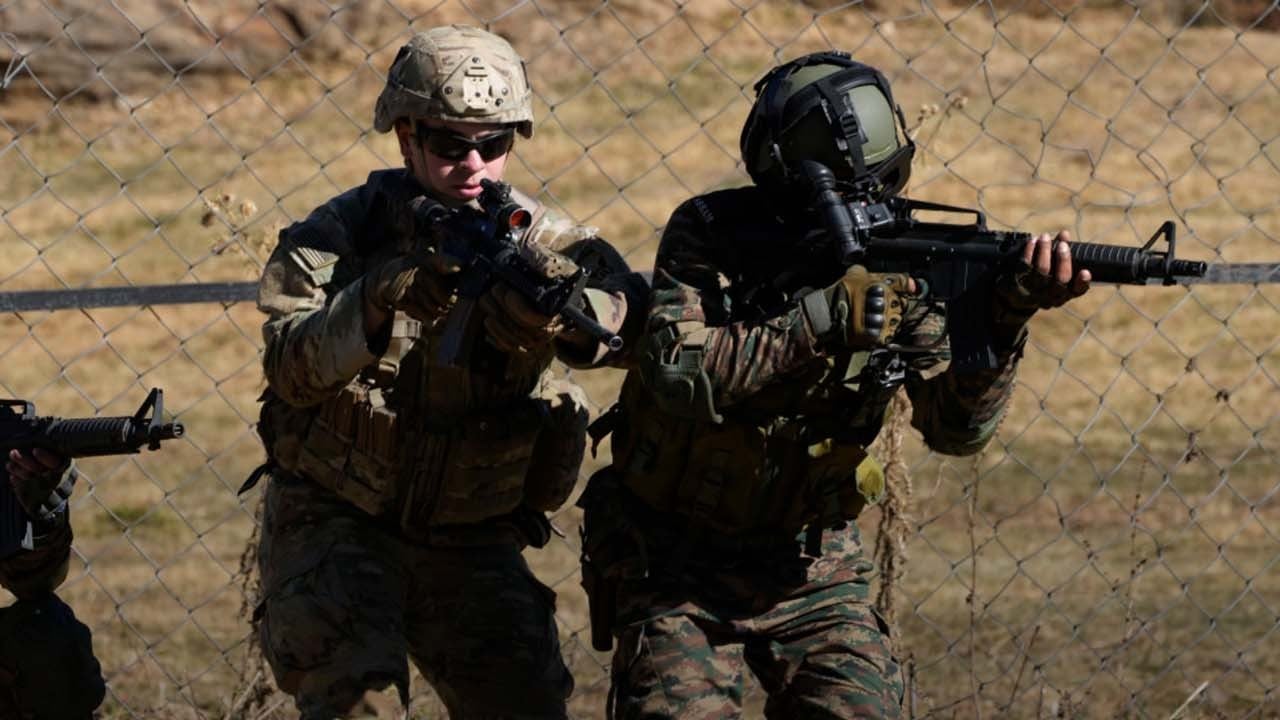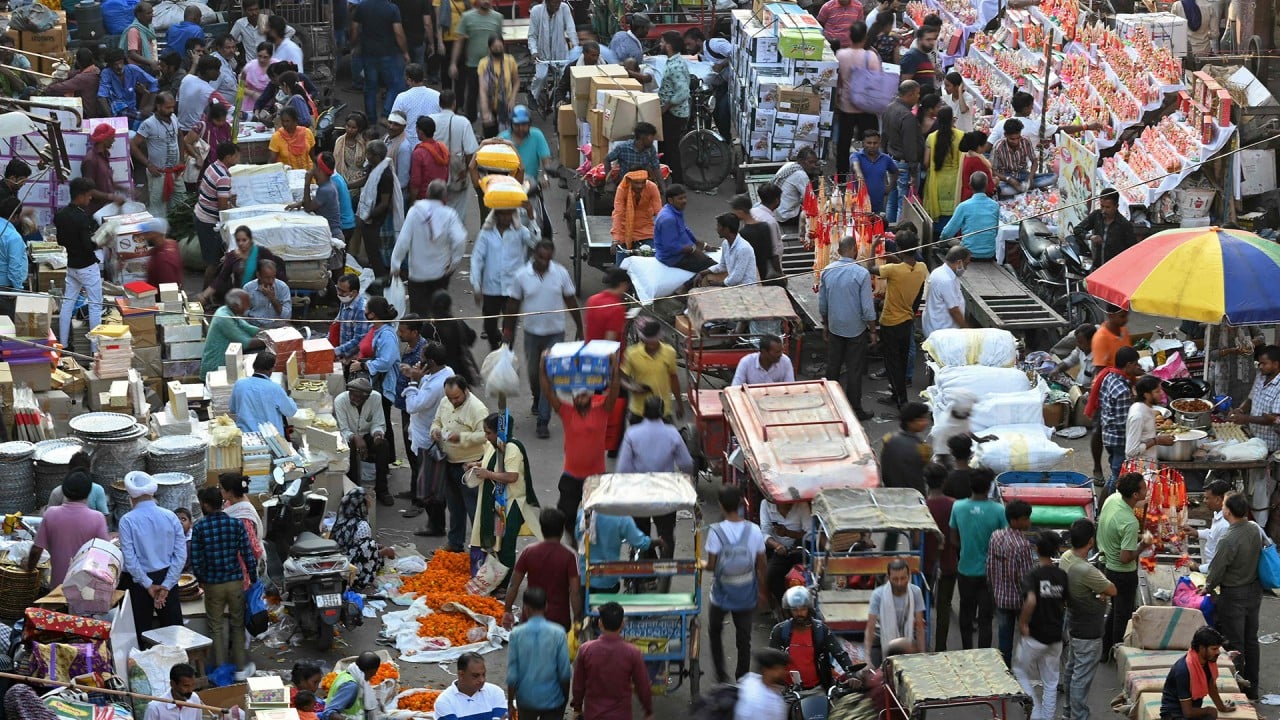
Why China, the only permanent Asian member of the UN Security Council, wants it to stay that way
- Amid concerns over reduced influence, Beijing has an interest in ‘keeping India out’ of the group, analyst says
- Growing geopolitical rivalries and deepening polarisation make long sought reforms to the UN body seem like ‘pipe dreams’, according to observers
When Russia offered its backing to India earlier this month, the support was full throated.
Denis Alipov, the Russian ambassador to India, said New Delhi had a “balanced and independent approach to most topical issues” and warranted becoming a permanent member of the United Nations Security Council.
India is pushing to get a seat at the table with the council’s five permanent members, or P5 – Britain, China, France, Russia and the United States.
Those five represent victor nations of the second world war, and now with Russia behind India’s bid, only one – China – remains opposed to admitting the South Asian giant.
They also say that any other efforts to add permanent Security Council members seems wishful thinking, with many challenges, including the difficulty of amending the UN Charter, standing in the way.
Vinay Kaura, an assistant professor at Sardar Patel University of Police, Security and Criminal Justice in India, said China had not been influenced by Russia’s consistent support for India, resisting any restructuring of the Security Council that carried the prospect of bringing India into the group.
“China’s animosity towards India finds its echo in this debate,” he said. “Since China is the only Asian power represented in the UN Security Council, it does not want any other Asian country to share this privilege.”
China’s ties with India have soured in recent years as tensions at their shared border soared. Both Asian powers have also been competing to represent the developing world.
Kaura said Beijing’s opposition had also been apparent in its strategy to downsize and restrict India’s strategic influence at both a regional and global level.
Last year, Wang Yi, China’s top diplomat, said reform should “increase the representation and voice of developing countries, allowing more small and medium-sized countries to have more opportunities to participate in the decision-making of the council”.
In addition to India, other countries, including Brazil, Japan and Germany have also sought permanent seats on the UN body.
But according to Richard Gowan, UN director at the think tank International Crisis Group, India has been the “most hardline advocate” of council reform.
“[India] is absolutely adamant that it should have a permanent seat … and it is not in a mood to compromise on this,” he said.
“How can we talk of it as a primary organ of a global body, when entire continents of Africa and Latin America are ignored? How can it claim to speak for the world when its most populous country, and its largest democracy, is not a permanent member?” he said.
Gowan said that Russia’s growing support for India’s bid could have stemmed from its desire to prevent US allies – like Japan and Germany – from gaining more power at the international body.
Obviously, China has an interest in remaining the only Asian power with a permanent seat on the council, and keeping India out too
But he suspected that even Moscow did not believe reform was likely. “So to some extent, this is another example of cheap political signalling over UN reform,” he said.
As for China, Gowan said its “absolute red line” would be if Japan won a permanent seat on the Security Council, a scenario that “really worries” Beijing.
“Obviously, China has an interest in remaining the only Asian power with a permanent seat on the council, and keeping India out too.”
The P5 members of the Security Council are granted powers to veto UN resolutions, with 10 others nations elected on a rotating basis.
Gowan said that China had previously used its blocking power to support Pakistan over the Kashmir conflict with India. “If [China] has to deal with India as an equal at the UN, it would reduce its influence over Asian-related diplomacy,” he said.
Kaura, from Sardar Patel University, added that China’s policy had been to project itself as a champion of the Global South and Beijing has not viewed its opposition to India as contradictory to its demands for a reform of the Security Council.
China, he suggested, would likely be more keen on a limited expansion, in which additional permanent members would not have the veto powers the P5 members now wield.
China would be happy to talk about giving developing nations more power in the Council in “general terms”, Gowan said, but he was unsure if Beijing would invest political capital in any particular model of reform.
“Beijing is in part using this language to satisfy the African group of states at the UN, which it wants to cultivate as a friendly political bloc,” he said, referring to Africa’s calls for two permanent seats on the Security Council.
Russia’s support for India also came amid growing calls for a change in how the UN Security Council operates.
Stewart Patrick, director of the Global Order and Institutions Programme at the Carnegie Endowment for International Peace, said “the impulse for reform is understandable”.
The structure of the five permanent members was first introduced in 1945 but after nearly eight decades, it has remained the same even as major players like India and Brazil emerged, he wrote in a piece published by the Washington-based think tank in June.
Compounding membership frustrations has been how each of the P5 countries have retained veto power, allowing each to unilaterally block Security Council resolutions that are not aligned with their own national interests.
“The result is frequent council paralysis, exacerbated by deepening geopolitical rivalry between Western democracies and authoritarian China and Russia,” Patrick added.
“To a growing proportion of the world’s governments and citizens, the council today is both feckless and unjust, dominated by irresponsible and unrepresentative powers inclined to abuse their position rather than safeguard the peace.”
UN secretary general Antonio Guterres had earlier suggested that it was time to reform the Security Council to align with the “realities of today’s world”, but separately said whether countries like India ascended to the group should be decided by UN Security Council members.
The International Crisis Group’s Gowan said Russia’s war in Ukraine and the evolving conflict in the Middle East have lent an extra sense of urgency to reform of the Security Council.
He said UN member states were particularly “angry” about Russia’s use of its veto over Ukraine and US vetoes over Gaza.
Russia last year blocked a Security Council resolution that described its attempts to annex four regions of Ukraine as an illegal move to modify Ukraine’s borders and a “threat to international peace and security”.
In response, Ukrainian President Volodymyr Zelensky called for Moscow to be stripped of its veto power, saying its powers rendered the international body “ineffective”.
More recently, Washington last month vetoed a resolution that demanded an immediate humanitarian ceasefire in Gaza.
“The council has also been struggling to deal with other crises like the wars in Sudan and Myanmar, and there is a sense that the UN is losing credibility as big power tensions rise,” Gowan added.
UNSC reform is urgently required to restore its effectiveness and legitimacy
Kaura noted that the composition of the Security Council had remained the same even though the world has undergone dramatic changes since 1945, with nations like Brazil, Japan and Germany gathering strength politically and economically.
“Most countries believe that UN Security Council’s performance and legitimacy have come down. And, geopolitical rivalry between the liberal democracies and authoritarian regimes has also deepened,” he said.
“In this situation, Security Council reform is urgently required to restore its effectiveness and legitimacy.”
But he warned that some hurdles stood in the way. The biggest among them was the tall order of amending the UN Charter, with different countries taking varying positions on the issue.
The veto power granted to permanent members was another hindrance. “There is strong disagreement among member states regarding ‘whether’ and ‘how’ the current veto provisions should be extended to new permanent members of UNSC,” Kaura said.
“Any change in the voting procedure would require the consent of two-thirds of UN members, and that is not an easy task. Due to growing geopolitical rivalries and deepening polarisation, Security Council reforms seem to be pipe dreams.”
Courtney Fung, a scholar-in-residence at Asia Society Australia, agreed that the odds were low.
One reason was the competing proposals over reform, which included an African-led plan, as well a submission by the so-called G4 of Brazil, Japan, India and South Africa. There were also concerns that individual states would defect from group calls if they won their own seats.
It may suit states to signal reform with little intention of actually getting to agreement
“Moreover, reform processes are to be consensus-driven even in the politicised environment of today’s UN Security Council. In short, it may suit states to signal reform with little intention of actually getting to agreement,” Fung said.
Gowan said that in 2022, US President Joe Biden “tried to harness the sense of discontent” with the Security Council, a move that “got diplomats very excited”.
Biden, who spoke at length about Russia’s war in Ukraine at the UN, said Washington supported increasing the number of both permanent and non-permanent representatives of the Security Council.
“This includes permanent seats for those nations we’ve long supported and permanent seats for countries in Africa [and] Latin America and the Caribbean,” Gowan said. “The United States is committed to this vital work.”
While Washington appeared to be able to set the agenda for other powers with his call and held many consultations on the issue last year, it was not able to make progress.
“So frankly a lot of talk about reforming the Security Council is quite hollow. I think P5 members sometimes raise the issue to win goodwill cheaply from those powers like India and Brazil that want permanent seats,” Gowan said.
“Nobody thinks that a reform is imminent.”



